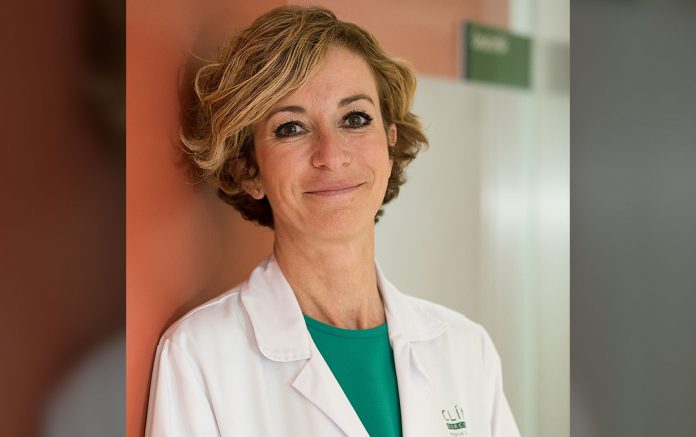Dr. Noemi Reguart is a medical oncologist at the Hospital Clínic in Barcelona, Spain.
In Spain, these past few weeks have been difficult—especially for health care personnel. The coronavirus took off fast, and we had very little time to prepare. Luckily, the government implemented the state of alarm quickly, and after 51 days of confinement, it seems like we are beginning to see the light at the end of the tunnel. Little by little, the situation is improving. However, the personal protection conditions were poor, and they arrived late, resulting In many unnecessary infections amongst the country’s health care personnel.
Hospitals have been forced to reinvent themselves in a short span of time. Pathology services have been converted to cope with the deluge of COVID tests. Radiology services are fighting to respond to the high daily demand for CAT scans to diagnose COVID. Hospital wards are no longer divided into departments but rather have been converted into COVID and COVID-free areas. Operating rooms have been turned into intensive care areas. Through all of this, we have had to maintain, as much as possible, a high standard of care for the rest of the patients without COVID.
For those of us who have not been on the front lines of this crisis, we’ve had to adapt in order to ensure that the quality of care for our patients with lung cancer is not compromised. Most importantly, we’ve had to protect them from the risk of infection. We have struggled—and will most likely continue to struggle —with inadequate information about the additional risk our patients who have been infected with COVID may now be facing or how systemic treatment may aggravate the condition. Daily decision making has been difficult for all of us, including our patients who must decide between leaving the house to receive their treatment and withholding treatment to maintain quarantine.
The Silver Lining
Despite everything, I believe that there are some positive outcomes from this period of confinement. One positive aspect has been discovering a new working tool—telehealth. At our hospital, a great effort has been made to offer virtual solutions to physicians so that they can attend to patients without the need for in-person visits. All of the processes and resources of the hospital have also been moved online including patient histories, imaging and programs for sending prescriptions to the hospital’s pharmacy. By doing this, we have been able to avoid crowding in our waiting rooms and have reduced the risk of contagion due to travel. The patients have greatly appreciated the initiative, and most importantly, they have maintained their confidence and feelings of security. I would say that, after a number of weeks of telephone calls, we have been able to create a state of mutual comfort and trust that is endearing but also nostalgic for times past.
Since the beginning of our COVID-19 confinement period in Spain (March 15, 2020), we have managed to reduce in-person visits to the hospital by 81%. We also have been able to treat 85% of our patients via telehealth. However, we have reduced outpatient treatment sessions by just 25%. I consider this new type of health care a complete success, despite not having previously even considered the feasibility of this arrangement as recently as a few short weeks ago. My personal perception is that we have had very few cases of COVID infection in our patients with lung cancer. I would like to believe that our fast reaction to an unpredictable situation made a positive contribution this low rate of infections.
Looking ahead, we now face a cautious and gradual process of reopening out healthcare system. It will be difficult to return to our habitual routines that we maintained pre-COVID. Our hospital is adapting to create better technologic solutions, which will make it possible to carry out virtual telemedicine visits using the very same hospital work-management platform. All crises present new opportunities and, who knows, this could be the foundation of a new health care model for the future.











